Inside CAFNR
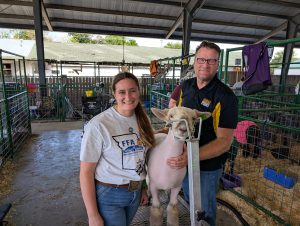
Aug. 16, 2024
Catch Up With CAFNR – August 2024
CAFNR faculty and staff worked together to educate participants in Life Sciences Quest, a week-long summer academy held on the University of Missouri campus July 14-18, 2024. Cory Bromfield provided Missouri pork producers with an influenza update on July 31 at the 2024 Swine Health Symposium. The CAFNR Advancement Team showed their heart by volunteering at the Ronald McDonald House on July 12, 2024, preparing and serving a delicious meal for the guests. Wine researcher Stephan Sommer shows off the first juice of the 2024 winemaking season. The Northern Missouri Research, Extension and Education Center held their annual field day…
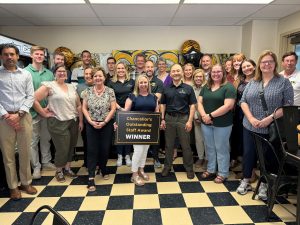
June 11, 2024
Catch Up With CAFNR – June 2024
Grazing School at the Southwest Research, Extension and Education Center, held May 15-17, was a success! Students participated in a pasture allocation exercise, learned proper fencing techniques and gained an understanding of forage quality and persistence. Staff Advisory Council and CAFNR colleagues gathered in Buck’s Ice Cream Place to surprise Secley Kennedy with the news that she had received the Chancellor’s Outstanding Staff Award – Clerical/Office. Kennedy, FNES Director & Chair’s Assistant and FNES Division Coordinator, also serves as the CAFNR Staff Advisory Council Chair. She was presented with the award during Staff Recognition Week. Scott Brown (center), associate extension…
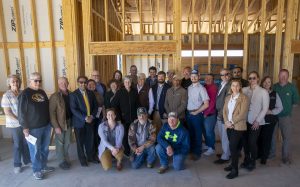
May 9, 2024
Catch Up With CAFNR – May 2024
Shibu Jose, associate dean for research, leads an Arbor Day talk on April 5, in conjunction with partners from the Missouri Department of Conservation. A topping-off ceremony was held April 12 for new Learning Center at the Horticulture and Agroforestry Research Farm. CAFNR’s annual Celebration of Excellence Ceremony was April 16 in Monsanto Auditorium. Nutrition & Exercise Research Day (NERD) was held April 25, featuring two expert speakers on topics surrounding health and physical activity.

May 7, 2024
Message from Bryon Wiegand
As I reflect on three years in the “front office,” it seems nearly impossible that this amount of time has passed. Then again, there is never a dull moment in the Division of Animal Sciences, and you quite literally have no time for grass to grow under one’s feet (not because of the past two years of drought either). This is a special place to work. I thought it a truly special place to learn in the early 90’s, and though my hair (and beard) have some gray, I still ride for the brand with vigor. From the students to staff to faculty,…
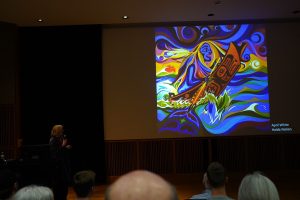
April 11, 2024
Catch Up With CAFNR – April 2024
Executive-in-Residence Laura K. Furgione, B.S. Atmospheric Science ’93 and Chief Administrative Officer of the U.S. Census Bureau, encourages CAFNR students to step outside their comfort zone. Serving as a forecaster in both tropical Hawaii and arctic Alaska, Furgione learned how to serve communities through science. Personal Financial Planning students got to network with potential future employers during their Industry Advisory Board Day on March 14 in Memorial Union. Alumni of the program engaged in roundtable and panel discussions with the students about their goals, future plans, and advice on entering the industry. Zach Leasor, assistant professor in the School of…
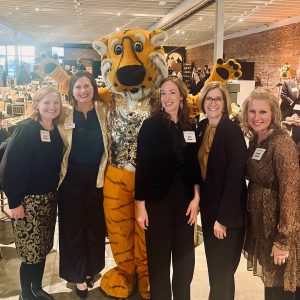
March 14, 2024
Catch Up With CAFNR – March 2024
Lindsey Saunders, CAFNR International Programs projects manager, was awarded the 2023 MU International Engagement Award. Agricultural Systems Technology students, along with other CAFNR and extension staff attended the Western Farm Show on Feb. 23. Event organizers Laura Friedrich, Kristie Larson (alumni), Amy Moum, Lisa Bocklage (alumni) and Reagan Brown pose with Truman at CAFNR Unlimited on March 9. CAFNR APO staff help students check in at the CAFNR/Arts & Science Career Fair on March 6. Dean Daubert and Reagan Brown play a game of PIG at the “March Madness” Dean’s Travelling Office Hours event on March 12.

March 4, 2024
Message from Heike Bücking
Dear Alumni and Friends, Welcome to the Spring semester. I am delighted to share with you more exciting news from the Division of Plant Science and Technology (DPST). Our faculty and staff continue to provide learning and leadership opportunities for our students in classrooms, research laboratories, field, and international settings. Our mission is to keep students on track towards graduation, and to provide them with high quality education and the foundation for life-long career success. Recent investments in new teaching spaces enabled us to purchase state-of-the-art laboratory equipment for the Henry Kirklin Plant Sciences Learning Laboratory and will equip a…
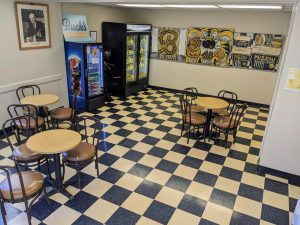
Feb. 13, 2024
Catch Up With CAFNR – Feb. 2024
Ashley Conway-Anderson, assistant research professor at the MU Center for Agroforestry, gives her presentation, Long-Term Silvopasture Research at the Center for Agroforestry during the The 2024 Agroforestry Symposium, Silvopasture in Practice. The symposium was held Jan. 17, 2024 at the Center for Missouri Studies in Columbia. Buck’s Ice Cream Place recently remodeled with new flooring and wall art. They’re back open for business with new flavors to try! Rob Kallenbach, associate dean for extension, with a Valentine’s Day floral arrangement from Tiger Garden.
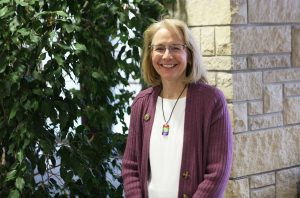
March 25, 2023
CAFNR Advisor Spotlight: Shari Freyermuth
Shari Freyermuth is an academic advisor for students in the biochemistry degree program. How rewarding is it to work with students in the biochemistry degree program? I love working with biochemistry students. They are driven to do well and they want to make a difference both now and in their future careers. I’m amazed at how much studying, activities and work many of them can pack into one day! How do you assist those students throughout their academic journey? I work with students to make sure their schedules work, and we often plan ahead for all four years. They…

Feb. 26, 2023
CAFNR Advisor Spotlight: Libby Johnson
Libby Johnson serves as an academic advisor for the natural resource science and management degree program. How rewarding is it to work with students in the natural resource science and management degree program? I love it! I love relating to the students through my nerdy office décor and being interested in what they are interested in. I also feel like my faculty and students are so kind and down to earth. Even if I don’t feel competent in the position, the students are appreciative of my help. I feel like I get to help them and see fruits of…